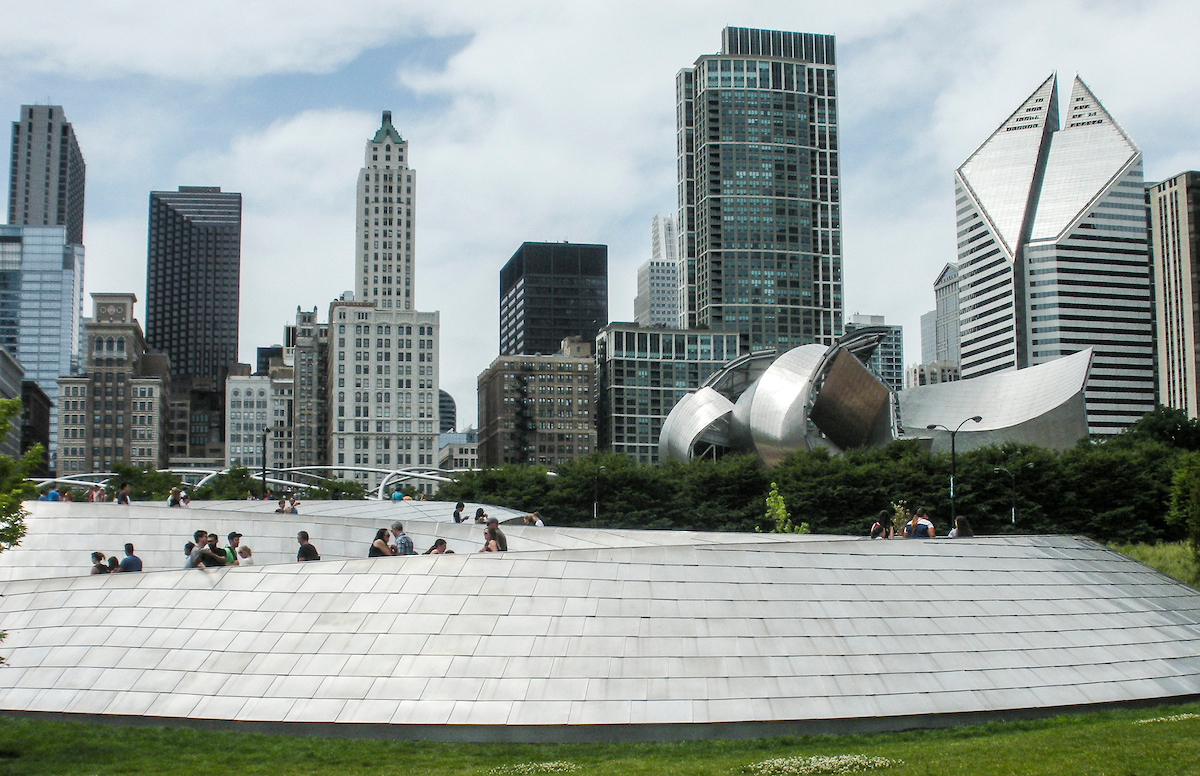 (DePaul University/Jamie Moncrief)
(DePaul University/Jamie Moncrief)Chicagoland has more than 50,000 nonprofit organizations, with a significant number of them driven by just a handful of staff. Capacity, not ambition, ends up becoming the most significant bottleneck holding things back — so many projects, not enough hands.
DePaul's College of Liberal Arts and Social Sciences is helping groups address this issue while, in the process, providing students with experience applying the skills learned in classrooms.
The Student Urban Research Corps is the solution, offering short-term support services that advance nonprofits' missions. Whether it's by building interactive maps for a website, creating a neighborhood profile, or cleaning up the data collected by contact forms, students are enabling community organizations to get more done.
Euan Hague, a Vincent de Paul Professor of Geography and director of DePaul's Urban Collaborative, says the SURC took shape as a way to manage requests coming regularly to DePaul from organizations needing help. Hague saw an opportunity for students to gain hands-on experience, but the requests presented obstacles: They were very brief projects, too short to amount to an internship, and their timing tended to coincide with midterms or finals.
"Unfortunately the world out there doesn't follow our academic calendar," Hague jokes.
Fourteen students through the college signed on as the SURC's original cadre of workers, and starting this winter, they were assigned to organizations as requests came in.
"This year I have really been looking to get more work experience in GIS [geographic information systems] and really try and figure out what I want to do once I graduate," says senior Jennifer Ovist, a geography major. "I thought joining the Research Corps would not only be a great résumé booster but also get me more practical experience on top of my normal course load and internships."
Early SURC projects with the Chicago Furniture Bank, the Coalition for Immigrant Mental Health and Organizing Neighborhoods for Equality: Northside involved working with data sets — cleaning up records, turning hard copy into electronic files and the like.
"Organizations we've worked with have realized that their records are maybe not as complete as they assumed that they were," Hague says.
With one project, he notes, "we started work enthusiastically, ready to move forward. Then we hit this very practical barrier to proceeding." This, too, is a learning opportunity — giving students an up-close understanding of how things work outside the classroom, in spite of the best of intentions.
Along with practical experience, students receive a stipend for working with the SURC. (The program is supported by funding from the Julian Grace Foundation.) Participants also build their networks and gain human-subjects research training, a valuable professional development opportunity.
Lily Baird, a sophomore, said the SURC "sounded like a great way to meet new people and complete hands-on projects that I'm passionate about."
"I'm really excited that I'm getting the chance to build relevant experience and better my GIS skills while actually being paid for the projects I'm working on," says freshman Alejandro Arakelian.
Because the program is based within the College of Liberal Arts and Social Sciences, the original SURC roster includes several geography students, while other participants have experience in statistics and public policy. What stood out to Hague was how many students applied because they want to share their skills in mission-aligned service.
"Class projects are great," Ovist says, "but it's nice to know that the work I am doing is actually going to benefit a community organization that does wonderful things."
As the SURC heads into its first summer, it aims to connect with external organizations who could use these services. Hague invites faculty and staff members connected with such groups to contact
urbanresearchcorps@depaul.edu to get the ball rolling.
The work is not always glamorous, but it is deeply valuable.
"From work I've done in community organizations, I just know that they have a pile of paper that they wish they'd done something with three years ago — old surveys or something like that," Hague says. "Now we can offer the capacity to actually do something with those papers."
Scott Butterworth is an editor of Newsline.